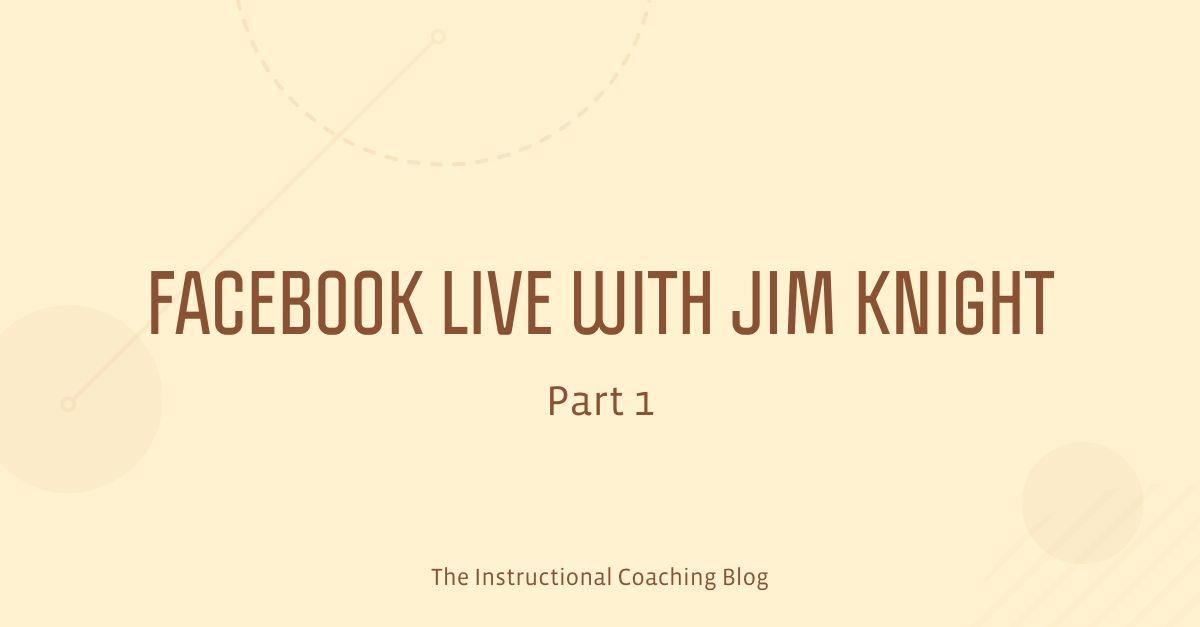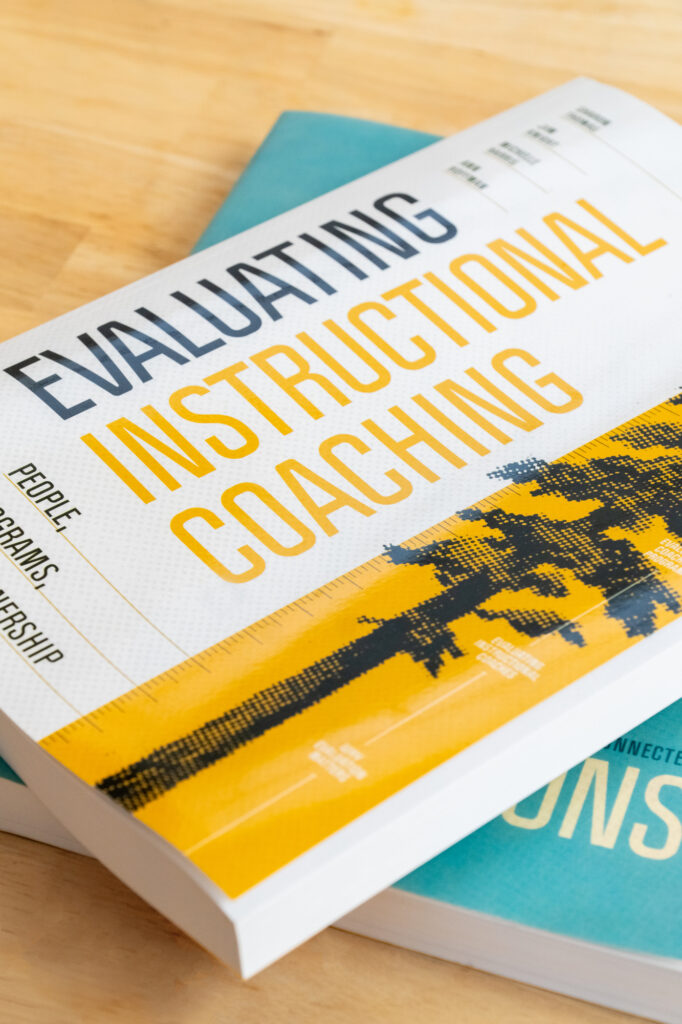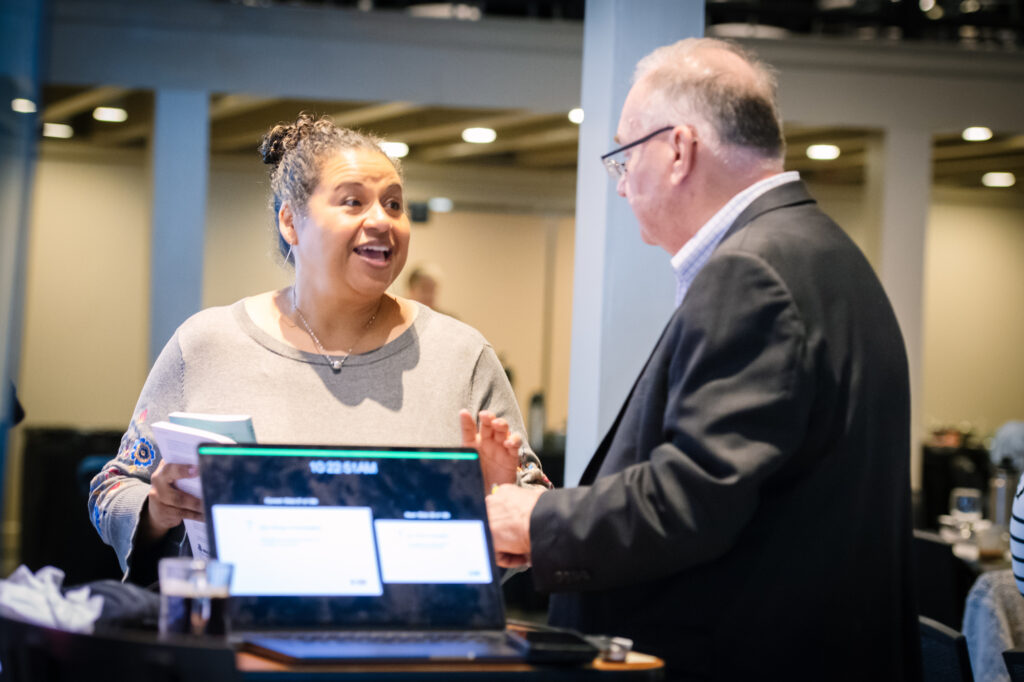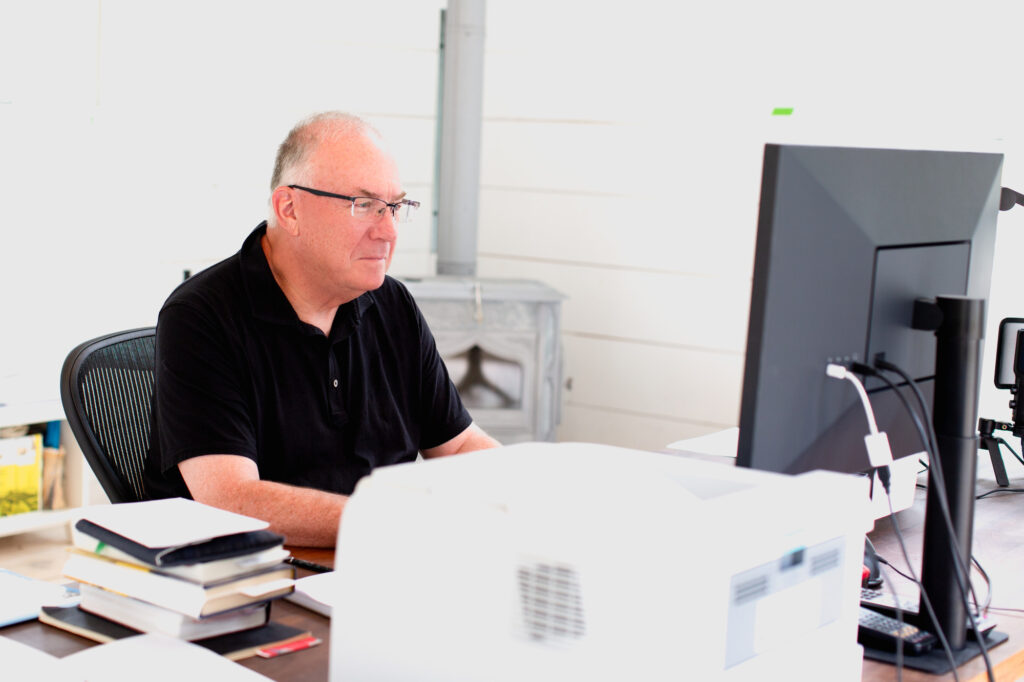Last week, Jim Knight hosted a Q&A Live Facebook chat where he answered questions from coaches. Some of the questions and highlights of that chat are summarized and shared in this post, and a link to the full Q&A can be found farther below, as well as on Instructional Coaching’s Facebook Page.
Question: How can we shake this feeling of helplessness and guilt over not being able to do enough during this time?
Jim: The first important thing to think about is to make sure we recognize that these are just weird times, and we need to forgive other people when they let us down, and we also need to forgive ourselves. Every day we should try to take some time to one: think about the things that we are grateful for during this time, and two: find some sanctuary to give yourself a break even for a few minutes. I think it is also important to find support. Reach out to friends and try to support each other however possible, and just be there for each other.
Question: If I have started coaching cycles with coaches, or coaches are in the midst of cycles with teachers, what will those look like when we all return to our schools? How do we re-convene… or do we?
Jim: My thinking is that you would go back to the identifying stage of the impact cycle and give yourselves an update on where everything stands. It would be important to define your updated current reality, and one of the most important things would be to interview the students and to get their take on where they are. Maybe bringing together small groups of students and figuring out where they are before starting the cycle over again would be helpful.
Question: At a time like this, what is each phase of the coaching cycle expected to look like? What goals will teachers be setting for their coaching cycles in terms of behavior, engagement, and achievement?
Jim: Firstly, I don’t know! Everybody is going to be in a different situation, but what I would say is there are elements of the Impact cycle you could use- one of them being having questions to help a person set a goal. The idea of the Impact cycle is we get a clear picture on where we are, we identify a goal, and then we figure out a strategy to get the goal. The learning part of the impact cycle is about getting the person ready to implement- whatever it takes to do it. In these very different times, that’s going to likely be a more facilitative approach because you are probably not going to have some of the same expertise about some of the tools you are going to be sharing- especially if you have just found those tools a couple days ago! The third part, the improvement part, is just about making adaptations until the goal is set.In these times where things may be very different however, you might also want to consider other processes. For example, if you don’t have a chance to do a whole cycle, and you only have one conversation, maybe something like John Campbell and Christian Van Nieuwerburgh’s GROWTH model of coaching might make more sense. I think having the right process is going to be important. The Impact Cycle is really going to be helpful if the person is focused on changing the way they do something, and the GROWTH model will be helpful if people are coming up with a plan and a goal to move forward.
Question: I would love a strategy for scheduling coaching tasks daily and across the week. Virtual life feels much different now, and many coaches ask for support in this area.
Jim: I have learned from Nir Eyal’s new book, Indistractable that if there are things you need to get done, then you need to intentionally block off that time and do it. I am trying to write a book right now on the 7 Success Factors of Coaching, and I find that if I don’t rigorously block off the time, then it is just gone. If you want to set aside some time for coaching, then it is going to have to be sacred, you are going to almost have to be rude about it by turning down things from people you like in order to get it done. Blocking off time is critical!
Question: How do we continue coaching during this time without overwhelming our teachers?
Jim: I think everything has to be about help. I grew up on a farm in Canada, and I remember there would be various emergencies like snowstorms or blizzards, or a barn burning down, and whenever those crises came along everyone came together and they did what they could to support each other in any way that was possible. So, I think the question we should ask ourselves to motivate what we do is: how can I be supportive? We don’t need to be coaching just so something gets done, but instead we could ask, what would be helpful right now? Or what resource can I find for you?





























